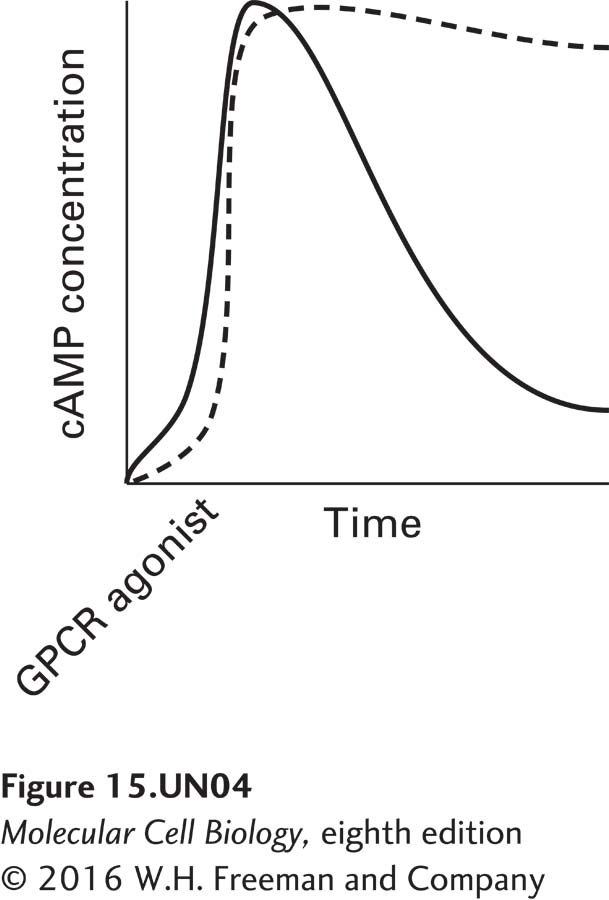
Chapter 15. Cholera and cAMP
Introduction

Analyze the Data 15-3: Cholera and cAMP

Cyclic AMP is a second messenger that regulates many diverse cellular functions. In the intestinal lumen, it is responsible for maintaining electrolyte and water balance. Certain bacterial toxins, including one produced by Vibrio cholerae, can upset the levels of cAMP, leading to fatal dehydration.
a. Given what you know about the mechanism of Vibrio cholerae toxin, label the two curves in the graph to the right showing cAMP concentration in (1) normal intestinal epithelial cells treated with a GPCR agonist to activate Gαs and (2) cholera toxin–treated cells stimulated with the same GPCR agonist. Explain how you came to these conclusions.
cAMP concentration in normal intestinal epithelial cells rises and then falls, whereas in cells treated with cholera toxin, cAMP level rises and remains high. This is because, in cholera toxin-treated cells, Gαs is permanently in the GTP “on” state, which causes adenylyl cyclase to remain active, producing abundant cAMP.
b. Would you expect lower or higher levels of PKA in cells treated with cholera toxin? Explain how you came to these conclusions.
Higher, because the abundant cAMP keeps PKA active, which subsequently leads to the activation of channels which indirectly causes water to follow the ions out of the cell.
Activity results are being submitted...